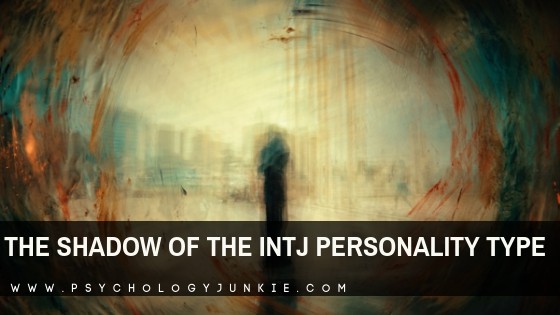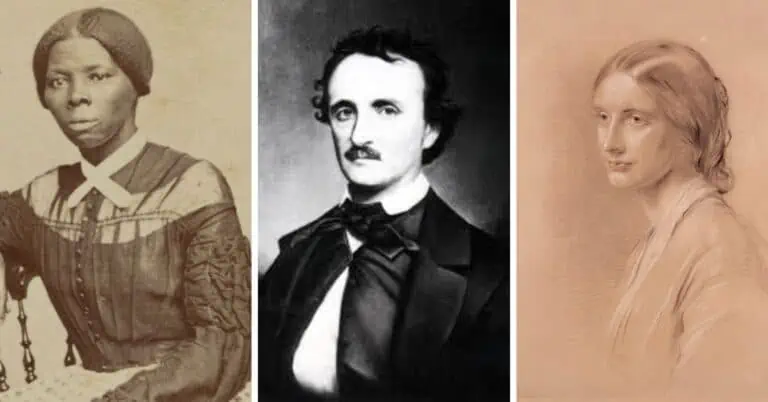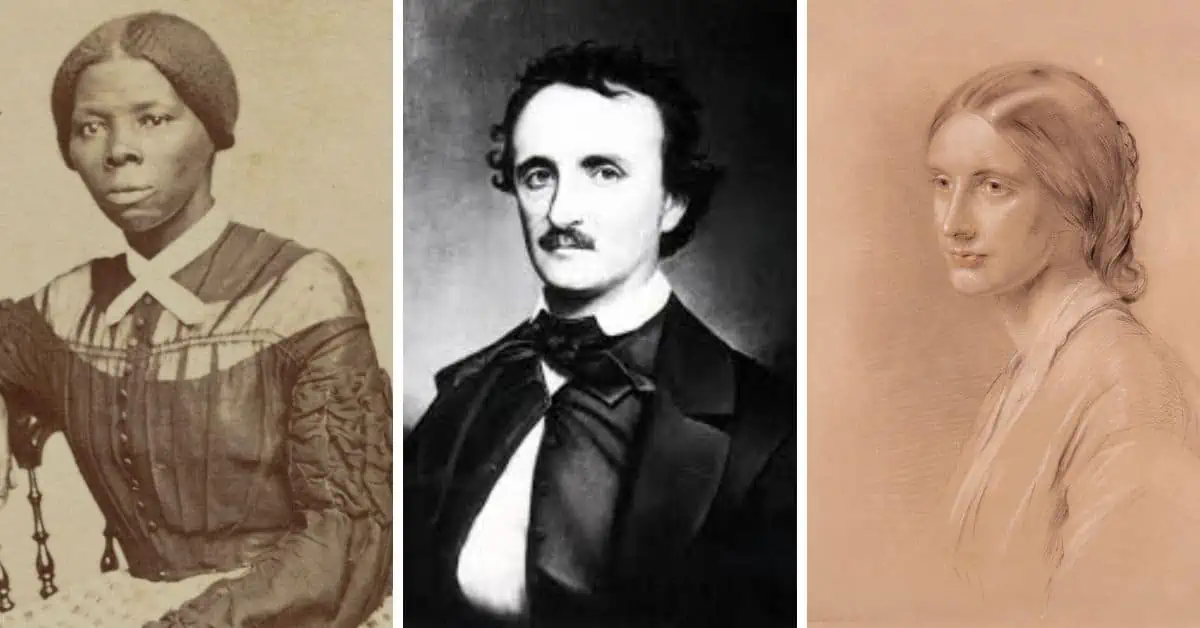The Shadow Functions of the INTJ Personality Type
Do you want to get a more in-depth look at your personality type? Do you ever wonder if there’s more to you than the basic type descriptions you read online? Let me let you in on a little secret…there will ALWAYS be more to you than your personality type. Your background, unique biology, your life experiences, your love language, enneagram type, all these things play a part in who you are. No two INTJs are exactly alike. But today we’re going to shine a light on some of the deeper and less-talked-about aspects of being an INTJ. We’re going to look at the shadow functions.
Not sure what your personality type is? Take our new personality questionnaire!

What Are the Shadow Functions?
Each of the 16 Myers-Briggs® personality types has a function “stack”. What most type descriptions will focus on are the four primary functions found in one’s personality type. For an INTJ these functions would be as follows:
Dominant Function: Introverted Intuition (Ni)
Auxiliary Function: Extraverted Thinking (Te)
Tertiary Function: Introverted Feeling (Fi)
Inferior Function: Extraverted Sensing (Se)
Does this mean that INTJs never use extraverted intuition, introverted thinking, extraverted feeling, or introverted sensing? Absolutely not! Today we’re going to look at how these four less-conscious functions show up in the INTJ mind.
The INTJ Shadow Functions:
Opposing Role: Extraverted Intuition (Ne)
Critical Parent/Senex: Introverted Thinking (Ti)
Trickster: Extraverted Feeling (Fe)
Demon: Introverted Sensing (Si)
All these names sound kind of foreboding and mystical, but don’t worry. This will all make sense as you continue reading. Shadow functions can show up in both positive and negative ways, but they tend to be less-conscious than the primary functions in your stack. We tend to see them as “other” and not part of ourselves. Our primary functions are what we see as “us”; they’re what we accept into our ego. Shadow functions tend to be weaker in strength than the primary functions, and we tend to project their weaknesses onto others without realizing it.
A Little Background:
The 8-function type-model we’re going to delve into here comes from the work of John Beebe and Mark Hunziker. Dr. John Beebe, M.D. is a Jungian analyst, editor of the San Francisco Jung Library Journal, co-editor of the Journal of Analytical Psychology, and author of Energies and Patterns in Psychological Type: The Reservoir of Consciousness. Beebe spent a great deal of time studying the mental processes largely left out of Myers-Briggs theory. While Isabel Briggs Myers focused primarily on the dichotomies (I/E, S/N, T/F, J/P) and the primary function stack, she didn’t delve deeply into the less-preferred functions. Beebe was sure that Jung had more to say about the unconscious and spent many years studying how these functions played out in himself and others. Mark Hunziker, another expert in the 8-function type theory, is a consultant for the Association of Psychological Type, and author of Depth Typology.
This article contains affiliate links. I only recommend products I truly believe in.
A Brief Look at the INTJs Four Primary Functions:
Dominant/Hero Function: Introverted Intuition (Ni)
INTJs feel most adept in the world of underlying meanings, connections, and patterns. They look more at what happens behind the scenes than what is obvious on the surface. Introverted Intuition grasps concepts, abstractions, and envisions future implications and potential. Because INTJs have Ni in the “Hero” position, they tend to embody a heroic attitude when using this function. They may seem especially confident, sure of themselves, and competent in what they are doing and foreseeing. They will try to lead others in the direction of their vision. Their imagination, insight, and ability to see various theoretical perspectives and juggle them internally is advanced. When this function becomes inflated, they can become overly attached to a concept, possibility, or meaning, losing sight of concrete details or facts that could stand in its way.
Auxiliary/Mother/Father Function: Extraverted Thinking (Te)
INTJs use Te to stay focused on what’s objective and logical. They value factual accuracy and empirical wisdom. Te helps them to break down big tasks into sequential, efficient steps. Time management is important to INTJs and they will usually follow a linear line of reasoning to solve a problem. They are usually proficient at organizing their outer world so that everything runs smoothly and on schedule. This function tends to take on a nurturing/supportive role for INTJs. They see their objectivity and organization skills as something to be used to help others. By giving logical advice or creating an organized or effective system INTJs hope to help the people or organizations they believe in.
Tertiary/Eternal Child Function: Introverted Feeling (Fi)
Introverted feeling is focused primarily on weighing the importance and subjective value of things. It sorts out morals and ethics, trying to find out what is true to one’s self. INTJs experience Fi in a creative, almost childlike way. In fact, Personality Hacker calls the tertiary function the “10-year-old” and that would probably be accurate for its typical maturity. INTJs get a sense that something is good or bad rather quickly. They feel very loyal to their individual values and are usually more skeptical of broadly-accepted social constructs or values. INTJs often have an individualistic/non-conformist streak and this can stem from their eternal child process. Because this function is tertiary, it isn’t as advanced in its capabilities as Ni and Te are. INTJs can feel vulnerable or unsettled here at times. They may think they’re being purely objective about something only to be caught off-guard when someone points out how subjective their views really are. They can also become self-righteous about their beliefs and values if they’re not careful.
Inferior/Anima/Animus Function: Extraverted Sensing (Se)
Also called the “aspiring” function, the inferior function is one that tends to trip up every personality type. We see the inferior function as part of ourselves, we’ve accepted it into our “ego”, but it continually lets us down. It’s the source of much of our insecurity, and according to shadow-function theory, it’s the function we’re most likely to cover up with a “persona”. When we fantasize we often imagine ourselves being much better at this function than we actually are in reality.
For INTJs the function that fills the role of anima/animus is Extraverted Sensing (Se). Se is focused on experiencing and acting in the immediate context. It’s aware of the tangible realities at play in the current situation and quickly sizes up a situation to find out what resources can be used or what opportunities are available. Se-users (ESPs and ISPs) tend to have strong instincts and impulses and they thrive on living in the moment and responding pragmatically and quickly to sudden changes. INTJs aspire to use this function well. They envy people who stay tuned into the present moment and don’t miss a beat. But they may also struggle with awkwardness, losing sight of what’s happening around them, or missing out on details that can (quite literally) trip them up later. While INTJs may envy Se-dominant types, they can also feel that Se-based activities are “shallow” or a waste of their time. They may consider Ni-perspectives superior to Se-perspectives and suppress this function. During times of stress, this function can then “bubble up” and act out in a childish, overwhelming way. During a stress reaction, INTJs can become suddenly impulsive, reckless, and indulgent because they have inflated their dominant function so much that the anima/animus of Se “takes the wheel”, often in an unhealthy way.
INTJs can work on gradually increasing Se-maturity by taking bite-sized amounts of time throughout the day to focus on the present moment through recreation, sports, or games that require fast reflexes. They can also test their visions and predictions through the lens of reality, looking to the facts and resources presently available. They can also stop themselves when they realize that they are de-valuing Se-based activities and insights and give them a little more attention rather than dismissing them instantly.
The INTJ Shadow Functions
Opposing Personality: Extraverted Intuition (Ne)
Ne is the antithesis to the INTJ’s dominant function, Introverted Intuition (Ni). Ni focuses on underlying meanings, perspectives, and an inner impression of how things will play out in the future. It tends to be singularly focused and sure of itself. Ne presents alternate possibilities, contexts, hypotheticals, and interconnections. INTJs tend to feel that Ne is obstructing their Ni view. When presented with emerging possibilities or random interconnections and hypotheticals, INTJs can see it as oppositional and irritating. They may shut down their own Ne perspectives or the Ne perspectives of others, seeing them as being irritating or obstructive. When presented with alternate possibilities the INTJ may stubbornly insist, “No. Clearly this is where the pattern is leading. These random ideas that you are bringing up are pointless and a waste of time.” However, once INTJs learn that Ne is part of them, they can experience it as a “course correction” to their normal way of thinking. They can allow themselves to be more open to multiple interpretations of the current context.
If you are an INTJ and you find yourself thinking of someone else as oppositional or obstructive, try to stop yourself and determine whether or not they’re just putting Ne-perspectives into the world. Maybe there’s something that individual has to offer that you’re missing!
Critical Parent/Senex: Introverted Thinking (Ti)
The critical parent role is the antithesis to the INTJ’s mother/father function of Extraverted Thinking (Te). For the INTJ, Te is the source from which they nurture and protect and provide for themselves and others. They see Te as the most optimal way to get things done. Te wants to create order and structure in the outer world. It wants to know enough information to take action and move forward. Te asks, “What makes sense based on external facts, logic, and the process we’re trying to accomplish?”. Ti says, “What makes sense to me? What logical inconsistencies exist in my own thinking? Let’s look at the underlying system for how everything connects to determine what’s logical and rational.”
Both Te and Ti are useful and productive, but INTJs can see Ti as irritating, inflexible, overly-critical and belittling. To the INTJ, Ti is the inner voice criticizing or shutting down their Te-based plans. It might cause them to doubt a process that they are implementing by forcing them to look deeper at the logical principles behind it. INTJs might experience Ti-users (TP personality types) as being critical or belittling even when they aren’t being that way. An INTJ communicating with an INTP might find the INTPs level of clarity-seeking dissuading and irritating. They might lash out at them with something like, “I already know what’s logical! Stop mulling it over and let’s just move forward with the plan. You’re the one being illogical here.” At the same time, Ti can course-correct the INTJs way of thinking, causing them to make corrections when they aren’t seeing all the variables and principles at play in a situation.
Trickster: Extraverted Feeling (Fe)
The trickster is a process that creates disorder in order to bring new options to light. This process is the “naughty child” of the shadow functions, creating chaos and getting people trapped in double-binds and unwinnable situations. When INTJs are operating from a trickster position they may not accept responsibility for what they’re doing because the trickster is so disassociated from the ego that they can be unaware of it. This archetype can become activated when the critical parent function is attacking the eternal child (so 6th function attacking the 3rd function) and setting too many limits. It can also be activated when the INTJ feels attacked or criticized by someone else. This function can be turned inwards or outwards and projected onto others.
The function that fills the place of the trickster for the INTJ is called Extraverted Feeling or “Fe” for short. Fe looks to connect with and understand the needs of the group. It is concerned with group harmony, morale, and values. INTJs tend to dismiss Fe-related views as “silly” or disingenuous. They can see Fe as people-pleasing, manipulative, and/or phony. INTJs can struggle to be aware of the interpersonal needs of the people around them or the emotional expressions of others. They can feel like focusing on such things is exhausting or a waste of time. They may feel that people who use Fe are trying to trap them by reminding them of social values and expectations that are meaningless. They can project trickster Fe onto others, saying or feeling things like, “You’re trying to trap me with all your meaningless social rules, so I’ll trap you instead with other socially-expected rules.”
As INTJs grow and mature they begin to realize that Fe is part of them and they will repress it less. They will start to become more interested in addressing group values and expectations and can learn to laugh at themselves when they make a social faux pas.
Demon: Introverted Sensing (Si)
This is the most suppressed area of consciousness for the INTJ. Some type professionals call it the “Internal Saboteur”. According to John Beebe’s theory, this is the archetype that carries the emotions associated with evil, and the user can feel panicky and uneasy when faced with it. For INTJs this archetype is filled by the Introverted Sensing function. Introverted sensing looks for comfort, stability, and continuity in the outer world. Si-users tend to compare what’s happening now with what happened before and they’re good at replicating tried-and-true methods and techniques. They are also very aware of inner-body sensations and tend to live in a way that promotes physical comfort and consistency. Because Si is in the demon position for INTJs they tend to ignore the past and lose track of past experiences or lessons. They can also under-value self-care and comfort, living for their ideas and visions and ignoring bodily needs. INTJs can also feel haunted by their past, as if facing it completely could undermine everything they are working towards. However, when they’re extremely stressed they may get stuck re-examining past failures and negative experiences. When someone is presenting details of their past, INTJs may feel like that individual is attacking them with their past or trying to destroy them with irrelevant details. In turn, they may project the demon onto that individual and try to use their past mistakes to ambush them.
It’s important to remember that even the demon archetype isn’t always bad. At times INTJs can experience a universal awareness of the history of things and how that is significant to the entirety of their lives. They can also start to weave self-care and physical attentiveness into their routine and become more aware of what their body needs.
Summing it Up:
The way that each individual experiences their 8 cognitive functions is unique. Many people disagree about how the four non-preferred functions are experienced. Some believe that they can become accepted into the ego based on life experience (for example, if you’re an ENTJ with an INFJ parent you might integrate Fe more readily). Others are fonder of the socionics framework for the functions. Your experience is unique and can’t be detailed by anyone other than you!
The shadow functions can be experienced both in a negative or positive way, so it’s vital to remember that they aren’t always bad. It’s also important to be aware of them when you feel tempted to make projections about others (when you start seeing people as oppositional, critical, sly, deceptive, or evil). Understanding the shadow functions can help all of us to have better relationships with ourselves and with others.
Other Articles to Read Next:
10 Things That Excite the INTJ Personality Type
The Childhood Struggles of INTJs
3 Weird and Wonderful Secrets of the INTJ
What Are Your Thoughts?
Did you enjoy this article or hate it? Let us know if you have any insights or ideas in the comments!
Find out more about your personality type in our eBooks, The INTJ – Understanding the Strategist, Discovering You: Unlocking the Power of Personality Type, The INFJ – Understanding the Mystic, and The INFP – Understanding the Dreamer. You can also connect with me via Facebook, Instagram, or Twitter!
















I think this is so enlightening, and I (intj) recognize myself very much and find that it explains some of the strange phenomenons in my own psychology, for instans my utter dislike of meeting people from the past and general lack of comfort when trying to recall past events. I never go back if I can help it, it feels threatening.
Thank you very much :-).
I am so glad I found this article. The instant I started reading about Ne in INTJ, I realized: That’s me! It happens all the time! I’ll think I’ve considered all the pros and cons, then suddenly I realize this entire new set of things that could go wrong. It’s exactly like you said–like someone is throwing a wrench into my well-planned strategy. But I’m not one for ignoring facts or possibilities. Recently, I told myself, “Okay, just pick one and hope for the best.” If I remember correctly, it worked out just fine in the end.
And of course things have to make sense to me. Is that Ti? I’m not going to just take facts on authority. Never have, never will. It’s not possible, except for established trusted authorities in topics I am incapable of learning myself yet they apply to me personally, as in the inner workings of my computer on which I rely.
Likewise, I feel like I can identify with your descriptions of Fe and Si. I feel like I found a missing part of myself. It feels really good.
I am so glad I found this article. I’ve known for years that I’m INTJ. The instant I started reading in this article about Ne in INTJ, I realized: That’s me! It happens all the time!
I’ll think I’ve considered all the pros and cons, then suddenly I realize this entire new set of things that could go wrong. It’s exactly like you said–like someone is throwing a wrench into my well-planned strategy. But I’m not one for ignoring facts or possibilities so I feel the need to consider it all.
Recently, in such a case, I found myself going crazy with all the contradictory info swirling around my head, attacking me. I knew it all came from my own brain. Finally, I told myself, “Okay, just pick one and hope for the best.” If I remember correctly, it worked out just fine in the end.
And of course things have to make sense to me. Is that Ti? I’m not going to just take facts on authority. Never have, never will. It’s not possible, except for established trusted authorities in topics I am incapable of learning myself yet they apply to me personally, such as the inner workings of my computer on which I rely.
Likewise, I feel like I can identify with your descriptions of Fe and Si. I feel like I found a missing part of myself. It feels really good.